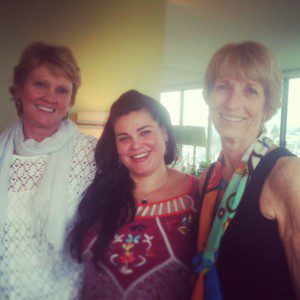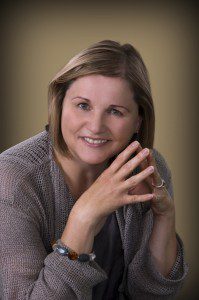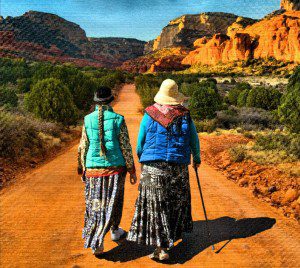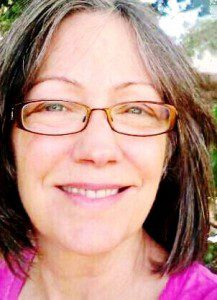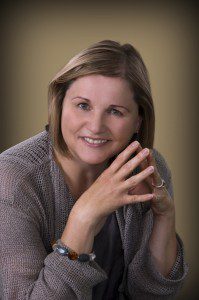 I launched a conversation about depression a few months ago asking this question: What if it’s not depression, as we’ve come to think of it, but rather a sign of our profound unhappiness and dissatisfaction?
I launched a conversation about depression a few months ago asking this question: What if it’s not depression, as we’ve come to think of it, but rather a sign of our profound unhappiness and dissatisfaction?
The question demands we get honest.
Observing my own life, these are some of the things I’ve discovered to be true for me: I don’t enjoy cooking, I’d rather be brewing words on the page; I love good company and great conversation but I’m not interested in inviting you over for dinner; I resent any time I spend cleaning up after other people; I’m in love with irises but I don’t like to garden; and I love my husband but there are times when I like living alone.
As I write these things down, I break into a cold sweat imagining my mother might read this and wonder what the heck kind of daughter she has raised! (Hi mom … I know you’re here so bear with me.)
Over the years I’ve done a lot of work with a lot of people in the realm some call the Divine Feminine. The idea of the Divine Feminine continues to evolve over time. The latest incarnation is something like this: to bring the world back into balance (it’s out of balance because of male dominated ideas and practices based on separation and competition) we need to aspire to be more cooperative, creative, and caring. This is understood in the context of patriarchy, a cultural scaffold mostly generated by men with women’s collusion. And the Divine Feminine refers to an energy or a quality that is present in all human beings.With me so far?
This can all be useful in helping us to grow our lives. I think, though, there is a blind spot many of us have. There’s an assumption that the Divine Feminine, as it lives in women, has been somehow untouched by living in our patriarchal culture. That the Divine Feminine is innocent of the culture she lives in. It’s a faulty premise that points to the division that lives in many women, me included. The Divine Feminine has a twin sister, the Dark Feminine.
“Patriarchy is … the marriage of the dark feminine and the negative masculine,” says Carolyn Baker, Jungian analyst (link to book Reclaiming the Dark Feminine). “If we’re going to understand and dismantle patriarchy, we need to be talking about the dark side of the feminine, as well as the negative masculine.”
What does it take for us to recognize the whole of what we are made of?
If I don’t acknowledge to myself that I don’t want to cook a meal for others and I’d rather use the time and energy to write, then I’ll project onto other people the negative emotion that it stirs in me. And it’s only negative emotion because it rips me from my inner centre and has me feeling things like resentment or sadness or frustration. It’s not negative at all if I remain true to what my real preference is, communicate to those around me and focus on the truth of my own desire. Then it’s simply emotion opening the door to my own soul and informing my human life choices.
I’ve been deviant most of my adult life. I’d like to think that my deviance is heroic. It’s not easy being the mother who doesn’t want to cook Sunday dinners for her family. But there is something bigger pushing up from inside of me that demands I create a different way of being for myself that’s in contrast to my social training. I want a new space for relationship with myself, my family, my world. I want a future beyond patriarchy. I want to evolve culture forward. And in my attempts to create such change, there are times when I feel the weight of the world. Our herstory is heavy! (I’m still getting flak about canceling Christmas, as we’ve traditionally known it, five years ago.) But I know that my social world will not change unless my inner world changes first.
And there’s something else.
The very thing I say I want, turns out, in fact, wants me.
Freeing our souls from the embedded cultural patterns we’ve inherited is a new kind of heroism. If we don’t make the effort then we run the risk of living unfulfilled lives. And that’s depressing.
Magdalen is a healer. Her therapeutic talks and inspirited writings connect us to the wisdom of our own soul.






